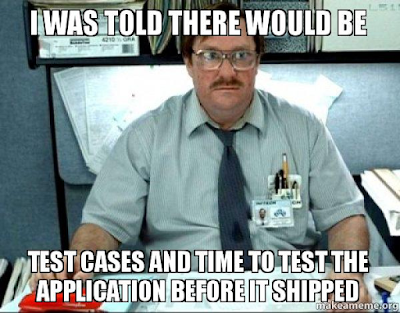Don't be Afraid of Job Requirements!
This is going to be a short post, as I just wanted to explain why you should not be intimidated by the official job requirements. I often notice that a lot of junior people complain about job postings, saying that job reequipments are too strict and that the list of required tools/technologies is too long.
It is true that lot of jobs have inaccurate descriptions, as sometimes they are written by non-technical people and there can be a lot of copy/pasting involved, to include hot an trendy technologies, which my not even be used by the company that is posting the job! Another reason is filtering candidates by using a lot of "intimidating" buzzwords, this way company scare of many enter level applicants as they will give up without even trying.
But let us look at this from a different angle. I have witnessed first hand that very often you will actually be working with just a small portion of tools mentioned in the official job posting. Many people I have talked to also confirmed the same - the job post might seem incredibly demanding but the real job turns out that it is much, much easier.You can still apply and pass a job interview even if you don't know all the stuff they are asking for. You can try to get some insider information if you know someone who is already working for that company, to get a feel about the "actual" job requirements for the position you are interested in. Just bear in mind that you might not always be able to get full details disclosed due to confidentiality issues, but even a slight glimpse on the actual needs for the opening will be valuable. Lastly, and perhaps most importantly, try yo get recommended from an existing employee of the company you're applying at. Recommendations carry a lot of weight and it will help you get past the door - otherwise your CV might just end up on some pile, collecting dust - you might get lucky without a recommendation, but as an entry-level applicant you should leverage everything you can to your advantage!
Thanks for reading and good luck!







Quite often, a highly restrictive set of requirements in a job description means that they already know who they want to appoint. or it may just show a recruiter who has spent too long adding in lots of "nice to haves" that aren't really necessary.
ReplyDeleteWhen I was in my last job search, I tended to treat job descriptions like these as reasons not to approach that employer, though if the job was a close match otherwise, I'd sometimes contact them, to discuss the role. Sometimes, recruitment agencies are a good intermediary; sometimes, you even get the opposite situation. I recollect one potential employer who persisted with saying "No, we think you're a good match for the role" even though I kept protesting that the skill set they were looking for included things I'd never done and never even thought of doing (like building test instrumentation hardware). I got to interview but wasn't successful. This didn't surprise me, but I would have liked the opportunity to ask them informally why they even thought I was a good match in the first place.
Thanks for sharing your experience Robert, it's very insightful. It's true that they may already have the position filled out and the job posting is just a formality with too many requirements so they don't get pestered by too many applicants.
DeleteLots of good points. This is especially true if you're applying for larger company that runs several projects. There is no way that all projects require a demanding tech stack that appears on the job posting.
ReplyDeleteThat's why I think it's the best to give it a shot and if you get to an interview part, maybe you will do well or maybe you won't but you will still learn something.
As for the recommendations, I totally agree with that. Those are a good a pat on the back.
Esteemed namesake, I'm truly glad you like the article. Thanks for sharing your thoughts on this, as well!
Delete